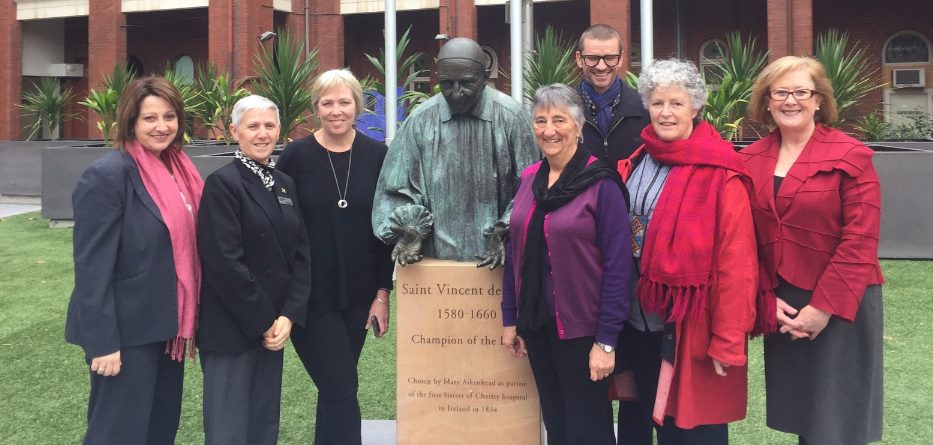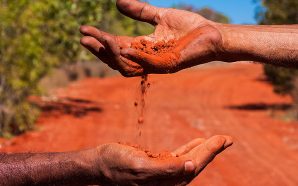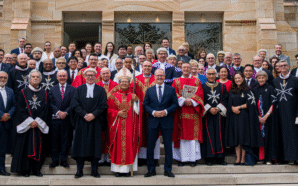Australia’s leading anti-human trafficking group and a major health and aged care provider have joined forces in a groundbreaking effort to change the way hospitals treat trafficked people and how to ‘slavery proof’ the goods and services they use.
ACRATH (Australian Catholic Religious Against Trafficking in Humans) and St Vincent’s Health Australia (SVHA) have launched the Human Trafficking Project, thought to be a first in Australia’s health care sector.
The project will look at how trafficked people – who may present at any of SVHA’s hospitals Australia-wide – can be identified and receive necessary treatment, support, referrals and access to services. This includes women who have been sexually exploited, people facing forced marriage and people who have experienced forced labour.
Related coverage: Bishop Vincent Long to launch paper on human trafficking
Related coverage: New paper on human trafficking & slavery released
The project will also look at how to make sure the goods and services procured by St Vincent’s are slavery-free. This means investigating supply chains to make sure a diverse range of goods – everything from medical equipment through to cotton sheets and gowns, and chocolates sold for hospital fundraising – have been produced without the use of enslaved or forced labour.
According to the Trafficking in Persons – Australian Government Response 2015-2016 report, the Australian Federal Police received 691 referrals relating to human trafficking and slavery-related offences between 2004 and 30 June 2016.
A recent report by the Australian Nursing and Midwifery Federation and The Australia Institute described how the production of every day medical goods – including surgical gloves, hospital garments, scissors, forceps, scalpels and suture needles – are associated with labour and human rights abuses in developing countries.
ACRATH’s executive officer Christine Carolan said work around the long-term project had already begun by developing new supply chain policies for SVHA’s procurement department.
“Slavery proofing supply chains also extends to the employment of people providing services. One example would be ensuring all staff working for third-party cleaning contractors engaged by St Vincent’s are employed under Australian labour regulations,” said Ms Carolan.
SVHA’s Group Mission Leader Lisa McDonald says, “The project is an example of our deep commitment to working with people who are vulnerable. “
“We know that most people who find themselves trapped in modern day slavery attend a hospital at some point. In health care we have a unique window of opportunity to not only address their health care needs, but to invite an organisational response in a way that might bring wider hope and transformation.”
“This sort of change will take time, but within a year we hope to have taken some bold steps to address human trafficking that will provide a blueprint for the entire health system,” said Ms McDonald.
With thanks to: SVHA and ACRATH.








